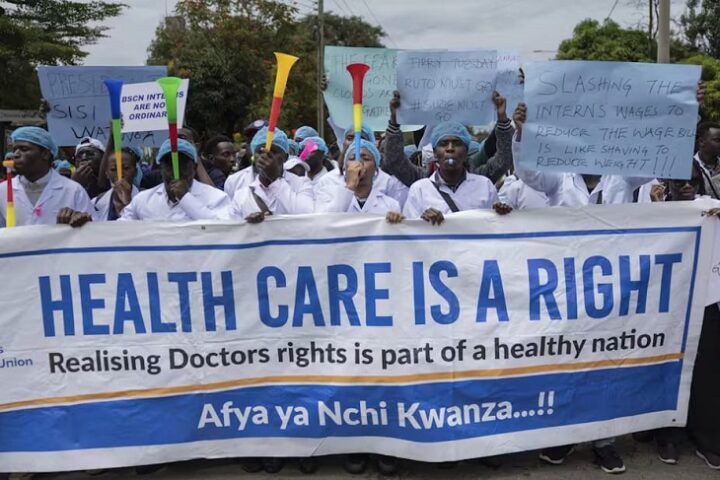Earlier this year, African heads of state met in the Ethiopian capital of Addis Ababa to discuss some of the continent’s most pressing challenges.
Child health professionals should be happy to note that the leaders agreed on key measures to get childhood immunization back on track following the massive disruptions caused by the Covid-19 pandemic.
The resolutions are in line with the World Health Organization’s theme for this year’s World Immunisation Week, “The Big Catch-Up,” which emphasizes the need to accelerate progress in returning life-saving immunization to pre-pandemic levels.
According to WHO, at the height of the pandemic, routine immunization dropped significantly resulting in a 16% increase in the number of under-immunized children across the continent. Further, both UNICEF and WHO estimate that half of the world’s zero-dose and under-immunized children live in Africa. This was a wake-up call for the African heads of state.
Granted, vaccines are a proven, reasonably priced, and effective method of disease control. However, despite this being common knowledge, there has been a decline in the perceived value of vaccines since the start of the Covid-19 pandemic, according to a UNICEF report this year. Perhaps the shift in perception can be explained by the popularity of anti-vaxxer messaging on social media during the Covid-19 vaccine rollout.
At the height of the Covid-19 pandemic, a combination of vaccine hesitancy, supply chain disruptions, and increased strain on health systems resulted in 67 million children missing out on vaccinations worldwide. As a result, the number of measles cases more than doubled, and the number of children paralyzed by polio increased by 16% from the previous year in 2022.
Data from UNICEF’s immunization portal shows that, in the middle of the pandemic, Kenya experienced a slight reduction in coverage of key vaccines including those that prevent TB, diphtheria, tetanus, whooping cough, and polio, among other serious illnesses. According to the Ministry of Health, approximately 300,000 Kenyan infants miss critical vaccines every year.
While the decline due to the pandemic wasn’t as steep as in other territories around the world, it still exposed weak points within our immunization systems. These gaps in immunization coverage result in periodic outbreaks of preventable deadly diseases. For example, since 2022 there have been reports of measles, whooping cough, and rotavirus-based diarrhea outbreaks in various parts of the country.
The WHO, for its part, has set ambitious vaccination coverage targets such as achieving 90% coverage of essential vaccines by 2030 and halving the number of children who do not receive vaccines at all. Initiatives like the government-led periodic intensification of routine immunization (PIRI), which aims to increase access to vaccines across the country in order to improve last-mile coverage, should be expanded and supported by all. These intensification drives are often the only chance that many families in the country’s most remote areas can obtain vaccines.
Without a doubt, and in order to meet the WHO’s target, every effort must be made to address the persistent bottlenecks in vaccine delivery systems. In addition to improving vaccine availability in the country, we must reconsider the availability of human resources and supply chain factors that will support immunization efforts.
The public must also be consistently enlightened on the importance of vaccines in saving lives. We cannot afford to lose public trust in immunization’s ability to save lives. Stakeholders from the private and public sectors must continue to educate the public in all available forums. Pediatricians in this country should take a leading role in this exercise.
Kenya can also learn from the countries that have managed to maintain 90% essential vaccine coverage even through challenging times. There is no doubt that with renewed political will, as demonstrated by the heads of state in Addis Ababa, and increased efforts by health sector stakeholders, the country’s vaccine coverage can be increased.
Dr. Joseph Mbuthia is a Consultant Paediatrician / Infectious diseases specialist at Gertrude’s Children’s Hospital.













